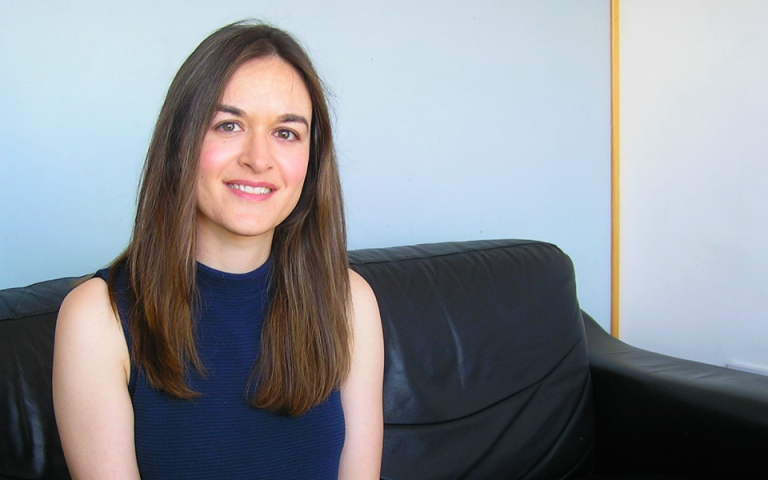Dr Maria Mediero
Dr Maria Mediero is the Faculty Innovation & Enterprise (I&E) Coordinator.

1 May 2022
When did you take up this position? What was your position beforehand?
I joined UCL last November, taking up this position as an opportunity for a career change.
I am a chemical engineer by training, and I got involved in research right after obtaining my degree. First, I worked as a research assistant with a Marie Curie fellowship at Nottingham University, which motivated me to pursue a PhD in Materials Science at Cambridge. After my PhD, I worked at Imperial College as a post-doctoral research assistant in nanomaterials research for a couple of years.
During my career I have worked in several multidisciplinary research projects focused on technology development covering engineering, materials, physics and chemistry. I’ve always been very keen to explore different aspects closer to innovation and societal impact such as knowledge exchange, policy engagement and technology transfer.
Tell us about your work at UCL - how do you spend your days, and what makes your role different to similar positions elsewhere?
I started in this position very recently, but I can now anticipate that my work has the potential to be both exciting and varied, and I really like this prospect.
The essence behind this role is fostering a culture of enterprise across the faculty, i.e. a culture based on creating impact and changing things for the better by, for example, joining efforts in getting research translated into solving real world problems and having the ability to influence not only our students but also both public opinion and policy.
In this context part of my work consists of promoting all types of enterprise activities (events, funding schemes, seminars etc.), working with Innovation & Enterprise towards the establishment of collaboration networks with external partners (from industry, government and non-profit organisations) and spreading the word about knowledge exchange and funding opportunities.
I’m also the primary point of contact in MAPS for staff interested in enterprise activities.
What are some of your favourite things about working in the department? How have you found it different to previous jobs?
Even though I’ve moved away from the lab, I’ve kept the same scientific curiosity that initially led me to pursue a scientific career. Working for MAPS with such a breath of research across different disciplines allows me to stay up to date with the latest scientific trends.
I also feel privileged to have the opportunity to learn from highly dedicated colleagues working at the faculty office who are responsible for the smooth running of the faculty’s machinery and coordinate all the different activities from teaching to research, communications and finances.
Can you tell us about any current or future projects that you're looking forward to working on?
We have multiple I&E activities at the faculty. For instance, we have just closed the calls for two I&E funding schemes, one to support early career researchers to progress their research towards commercialisation and the other one to support academics working on research projects with potential to produce impact and develop as future REF impact case studies.
Apart from these, we run an I&E student prize competition for MSci and MSc students working on their final year projects. The idea of this initiative is to get students to think about the potential societal and economic impact of their projects.
Please keep an eye on the MAPS website for our I&E Lunchtime seminar series happening every second Wednesday of each month (2:00pm-3:00pm) and covering different I&E topics such as intellectual property, translational research funding, policy engagement, partnerships and consultancy.
In these series, you’ll also have the unique opportunity to hear inspiring and successful I&E stories from MAPS academics involved in translational research projects and technology commercialisation.
Finally, tell us about your non-work life. Do you have any hobbies, or favourite places to go to?
Coming from a beautiful tiny village in Avila (Spain), where as a child you could run around freely, I learnt to play popular sports from basketball to football and table-tennis and participated in different sport competitions. However, I now have simpler hobbies and apart from travelling, I enjoy walking around nature, catching up with friends over a coffee outside on a sunny day, and practising freestyle yoga.
Last year, coming out from the pandemic and with the excitement of living close to the beach, I bought a wetsuit and ventured into wild swimming. Soon I realised how cold the waters of the English Channel can be when autumn approaches, and since then my almost pristine wetsuit is awaiting somewhere in the wardrobe ready for the (British!) summer to come…
 Close
Close

